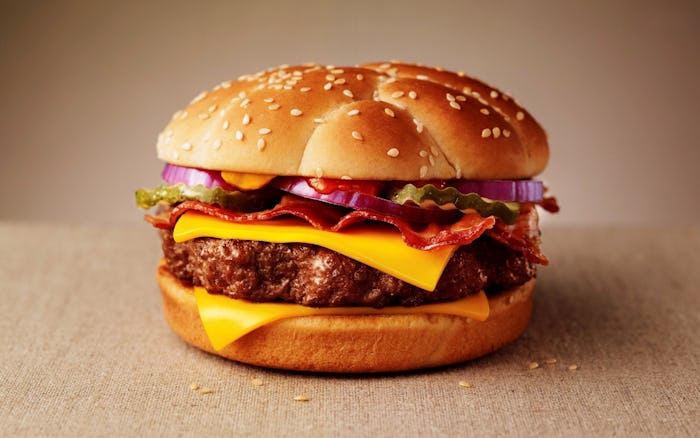Life

5 Diet Myths That Need To Be Debunked Right Now
Trying to piece together a healthy diet can feel like an impossible task. Due to the wealth of often contradictory information available online, in books, and on TV, sorting dietary fact from fiction can drive you a little nuts. I mean, one day butter is the worst thing in the world, and the next day people are telling you to put it in your morning coffee. It’s no surprise that some of this information is not true, and there are some diet myths to debunk so you can eat more easily.
These diet myths just make a necessary part of existence needlessly complicated. If you spend a lot of time and energy avoiding a certain type of food, only to find out later that it isn’t even bad for your health, you might get frustrated by the process of eating healthy altogether. It’s enough to make you give up and reach for a bucket of junk food.
Fortunately, there’s no need to throw in the towel just yet: legitimate nutritional facts can combat these dietary fictions. To learn more about the truth behind nutrition, I contacted registered dietitian and spokesperson for the Academy of Nutrition and Dietetics Torey Armul. During our conversation, Armul shared the five biggest nutrition myths out there, as well as easy ways to combat them. Looks like your food choices just got a little easier.
Myth 1: Gluten-Free Is Healthy
Contrary to popular belief, Armul explains that gluten-free does not automatically equal healthy. “If people lose weight, it's because they’re paying attention to their food choices and eating more real foods and less simple carbs,” she says. A gluten-free diet will not necessarily help you lose weight or feel more energized, and for about 95 percent of people, the positive effects of a gluten-free diet are not about the gluten at all. Furthermore, foods labeled as gluten-free sometimes contain more calories, extra fat, or added sugar to give a boost of flavor.
Myth 2: __________ Is Off Limits
“I teach my clients to avoid categorizing certain foods as ‘bad’ or ‘off limits,’ or saying they ‘cheated,’” Armul says. Instead, she advocates looking at the big picture and putting everything in context. The foods you eat over many days and weeks has a bigger impact than a single snack. A healthy diet and active lifestyle can accommodate all foods.
Myth 3: Wash All Food Before You Eat It
Do you rinse off meats before cooking? As Armul explains, washing raw chicken, fish, or other meats may do more harm than good.
“Rinsing doesn’t ‘clean’ them," she says. "It spreads unsafe bacteria around the kitchen, in the sink, and on countertops and cutting boards,” sThe solution? Remove meat from its package and place it directly into the cooking container.
Myth 4: Sugar Is Bad
Armul notes that sugar gets a bad rep, and vowing to cut it out of your diet is shortsighted. After all, some of the healthiest foods available — fruits and vegetables — are made up of sugar molecules.
“Our bodies are designed to run most efficiently using sugar in carbohydrates, rather than protein or fat,” Armul says. “It’s the type of sugar that counts." She advises people to opt for complex carbohydrates with fiber such as fruits, veggies, and whole grains. Simple carbs, such as table sugar, white grains, and candy, are best enjoyed in moderation.
Myth 5: Diet Soda Leads To Weight Gain
Armul explains that questionable research studies and scare-tactic media headlines have hyped up the myth that diet soda may lead to an increased appetite and weight gain, or even cause cancer.
“In truth, decades of research and testing have shown that diet soda is perfectly safe in the amounts typically consumed,” Armul says. Staying hydrated with a variety of liquids is a good idea, and for most people one to two cans of diet soda a day may not have any negative effects.
Images: Michael Stern / Flickr; Giphy (5)